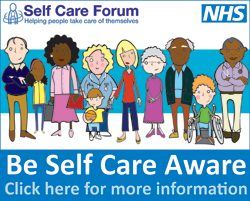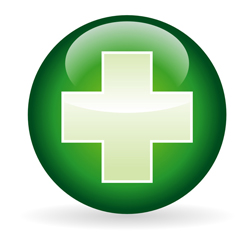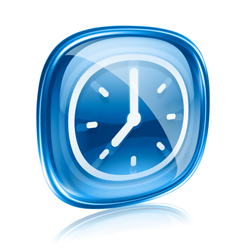Get the Right Treatment
Every year, millions of us visit our GP with minor health problems that can be easily resolved without a doctor's appointment.
It is estimated that every year, 50 million visits to the GP are made for minor ailments such as coughs and colds, mild eczema, and athlete's foot. By visiting your pharmacy instead, you could save yourself time and trouble.
Self-care
 Keeping a well stocked medicine cabinet at home can help you treat many minor ailments. Colds, coughs, indigestion and many other minor complaints can all be treated with medicines that are available over the counter.
Keeping a well stocked medicine cabinet at home can help you treat many minor ailments. Colds, coughs, indigestion and many other minor complaints can all be treated with medicines that are available over the counter.
Your pharmacist can advise on what you might find useful to keep in your medicine cabinet. Always follow the instructions on the medicine label and consult your doctor if the illness continues or becomes more severe.
Your Local Pharmacist
 Pharmacists offer professional free health advice at any time - you don't need an appointment. From coughs and colds to aches and pains, they can give you expert help on everyday illnesses. They can answer questions about prescribed and over-the-counter medicines. Your local Pharmacist can also advise on healthy eating.
Pharmacists offer professional free health advice at any time - you don't need an appointment. From coughs and colds to aches and pains, they can give you expert help on everyday illnesses. They can answer questions about prescribed and over-the-counter medicines. Your local Pharmacist can also advise on healthy eating.
Pharmacists can also advise on health eating, obesity and giving up smoking. Some pharmacists have private areas where you can talk in confidence. They may suggest you visit your GP for more serious symptoms. It is possible to purchase many medicines from the chemist without a prescription. Watch this short video on how you can get the most out of your local pharmacy
NHS Walk-In Centres
NHS Walk-In Centres offer convenient access to a range of NHS services for patients based in England only. You can receive treatment for many ailments including:
- infection and rashes,
- fractures and lacerations,
- emergency contraception and advice,
- stomach upsets,
- cuts and bruises, or
- burns and strains.
NHS Walk In Centres treat around 3m patients a year and have proved to be a successful complementary service to traditional GP and A&E services. Some centres offer access to doctors as well as nurses. However, they are not designed for treating long-term conditions or immediately life-threatening problems.
Accident & Emergency (A&E)
Major A&E departments assess and treat patients who have serious injuries or illnesses. Generally, you should visit A&E or call 999 for emergencies, such as:
- loss of consciousness,
- pain that is not relieved by simple analgesia,
- acute confused state,
- persistent, severe chest pain, or
- breathing difficulties.
If you're injured or seriously ill, you should go, or be taken, to A&E. If an ambulance is needed you can call 999, the emergency phone number in the UK. You can also dial 112, which is the equivalent for the European Union.
Major A&E departments offer access 365 days a year and usually open 24 hours a day. Be aware that not all hospitals have an A&E department.